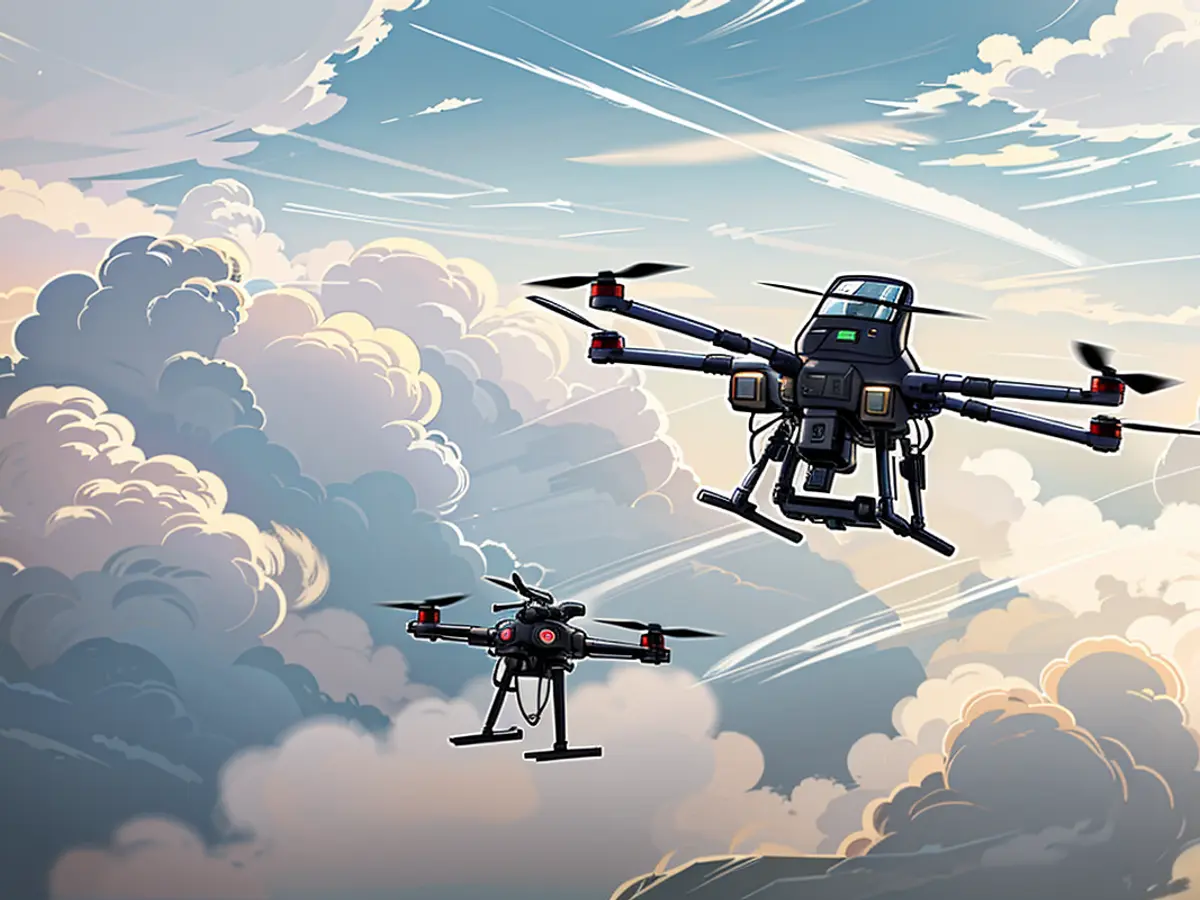Bundeswehr increasingly uses commercially available drones
More Drones for the Bundeswehr, but they should be small and fine - and from the electronics retail store around the corner. However, experts lament the Bundeswehr's lacking skills in handling these drones. There are reasons that speak against an in-house production of small reconnaissance drones.
A project group of the Defense Ministry recommends the Bundeswehr to widely use commercially available small drones in the military. "The use of small and micro drones should be enabled in the future in the Bundeswehr," a spokesperson of the ministry said on inquiry. Previously, the heads of the Defense Committee were briefed in a secret session about the results of the so-called Task Force Drone.
To ensure faster procurement for training and demonstration purposes, the purchase of market-available solutions was also initiated. "However, only access to designated products is permitted, which meet the required security requirements," the spokesperson explained.
For years, it has been criticized that the Bundeswehr lacks sufficient experience in applying the new technology, especially in the use of cheap small drones - and does not have access to sufficient quantities. Military personnel observe how technology is changing warfare. In Ukraine, affordable drones, which can be purchased like in hardware stores or over the mail order business, have become a military consumption good, often equipped with explosives and thus prepared for a lethal attack.
"The currently acquired small and micro drones will not be armed," the spokesperson said about this. The Bundeswehr has the Heron TP drone, however, which is armed. The new and rocket-equipped reconnaissance drone of the Bundeswehr went into practical flight operation in the airspace over northern Germany in May. However, it is significantly larger and more expensive.
Commanders should be able to procure themselves
The Task Force Drone, according to the Defense Ministry's statements, had the task of "bundling, coordinating, and taking concrete steps" for the more than 200 measures currently in existence in the Bundeswehr. In addition to accelerating and increasing the scope of procurement projects, the project group recommends a de-bureaucratization of the purchase of commercially available small and micro drones by commanders. These measures have already been initiated. The spokesperson said: "In the field of small and micro drones, the handling and defense can now be practiced and trained in the responsibility of the respective commander using these commercially available drones."
Experts advise against self-developments and also against large storage of equipment, where devices are stored that then quickly become outdated. "The small and micro drone technology stands out particularly for its unusually short development cycles at the moment. The rapid technological evolution leads to the fact that the Bundeswehr, among other things, is examining whether software updates can be contractually incorporated and the hardware does not have to go through every change cycle," the spokesperson explained.
The Task Force Drone suggested a range of protective measures for their own troops during their first deployment. The spokesperson explained: "Various technical means for disrupting enemy drones will be acquired, as well as electronic targeting aids for effective drone countermeasures. The development of non-lethal anti-drone drones (for example, with nets) is being supported by the Bundeswehr."
The Ministry of Defense's project group suggests that the German Armed Forces should widely adopt commercially available small drones for military purposes, citing the benefits of faster procurement and alignment with Germany's defense policy. Despite criticisms about the Bundeswehr's lack of experience with drone technology, experts advise against self-development due to the rapid evolution of small drone technology and the high cost of updating expensive in-house systems.








